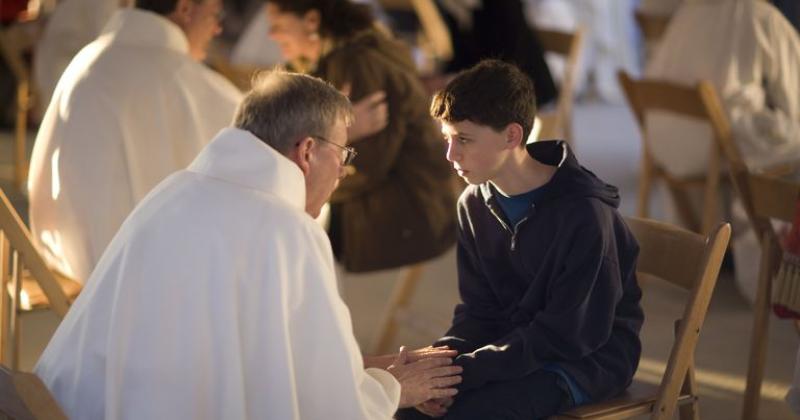As a priest with a wonderful Catholic primary school in my parish, I often meet parents who want their children to go to the school because they like its “ethos”, but wish it didn’t have to be so obviously “Catholic”. It seems not to occur to them that its “ethos” might be connected to its Catholicism. They want the culture, but without the cult which it is founded on.
Mark Zuckerberg, the CEO of Facebook, seems to have fallen into a similar trap. Earlier this week, he gave a speech in which he observed that “People who go to church are more likely to volunteer and give to charity – not just because they’re religious, but because they’re part of a community.” This, he believes, is a good model for how Facebook can benefit society. “A church doesn’t just come together. It has a pastor who cares for the well-being of their congregation, makes sure they have food and shelter. A little league team has a coach who motivates the kids and helps them hit better. Leaders set the culture, inspire us, give us a safety net, and look out for us.” Accordingly, Facebook has just changed its mission statement, from “Make the world more open and connected” to “Bring the world closer together”.
Zuckerberg seems to have “got religion”; not only has he abandoned his youthful atheism, he can see that religious leaders have an important role in fostering communities; that religious communities often have high rates of volunteering; and that the decline of religious institutions harms civil society. This is all true. But Zuckerberg wants to respond by turning Facebook into a sort of community network that can perform the same kind of function. That is, he wants all the benefits of the Church without the one thing that the Church considers to be the most important thing.
But Facebook cannot begin to be a substitute for the Church. Christianity is an incarnational faith: the Word becomes flesh. It is that fleshy encounter with the word, the importance of the physical in our faith, that draws us together. We receive Jesus through the sacraments, and to receive the sacraments we need to be physically present with other Christians. What draws us together Sunday after Sunday is our worship, the need to receive the word made incarnate in the Eucharist. This simply can’t be done electronically: we have to be present as a body to receive the body. It is this regular coming together as a “cult” from which springs the culture. Not the other way around.
Facebook is the polar opposite of an incarnational faith. It takes physical persons (us) and replaces face-to-face meetings with electronic encounters. We are alone in our rooms. Just compare childhood today with what it was like in the 1970s.
What inspires any culture is precisely the cult underlying it, be that Catholic Europe (and the cult of the Christ) or Communist Russia (and the cult of Lenin). If the vision perishes the culture perishes. It is for this reason that a multi-cultural society is an oxymoron, a society is built on a shared cult. What is the cult that Facebook is built upon that will draw people together into community? The cult of Mark Zuckerberg? The cult of the most Facebook likes?
Religions offer answers to peoples’ deepest needs and desire: What does it mean to be human? How do I live my life? What happens when I die? Where is true love to be found? When people feel they have found the answers (or at least guideposts on the way to those answers) then they will become engaged with the community built around those answers. Facebook cannot hope to answer those questions. If anything, it is part of the problem.
In “Choruses from ‘The Rock’”, T.S. Eliot addresses the “weariness of men who turn from God / To the grandeur of your mind and the glory of your action, / To arts and inventions and daring enterprises.” Eliot describes ambitious innovators, “Turning from your vacancy to fevered enthusiasm / For nation or race or what you call humanity.” reading Zuckerberg’s grand plans, Eliot’s words rang in my memory.
Eliot concludes:
Though you forget the way to the Temple,
There is one who remembers the way to your door:
Life you may evade, but Death you shall not.
You shall not deny the Stranger.
